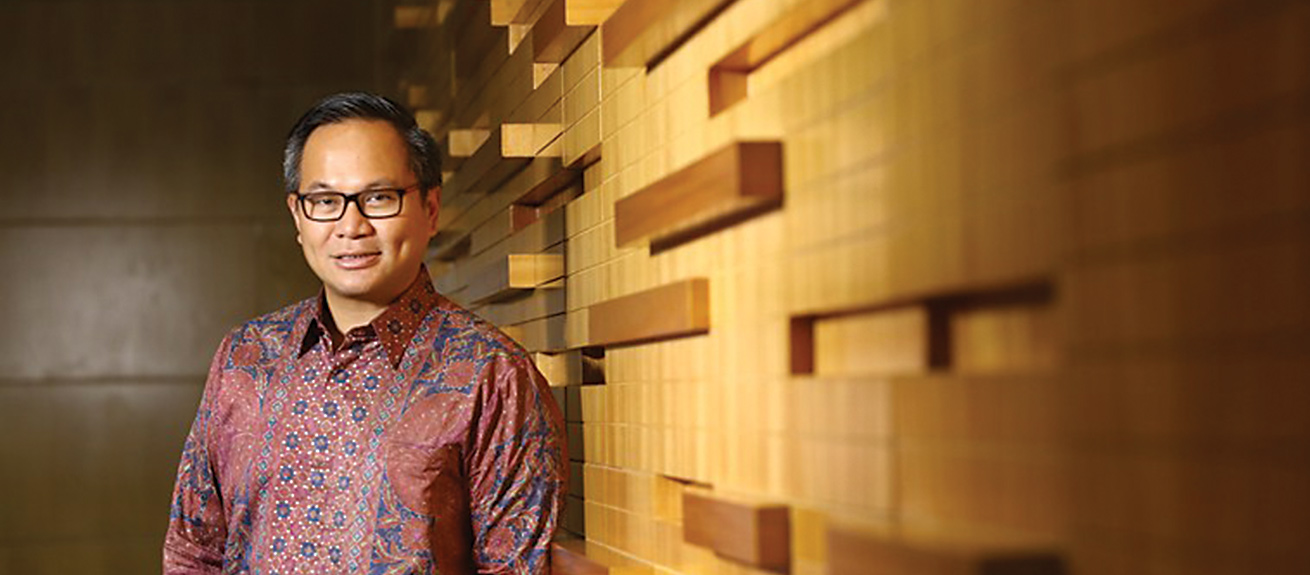
A bank in transition: That’s how Indonesian-based Bank Mandiri started and that’s how it continues to drive itself into the future.
Speaking at IMD’s Orchestrating Winning Performance program in Singapore, Bank Mandiri’s President and Director, Kartika Wirjoatmodjo outlined the company’s past, present and direction for the future.
Bank Mandiri formed in 1997 following the Asian Economic Crisis and was literally created from a transition in progress – the merger of four state-owned banks that needed to combine strengths in order to find success in turbulent times. After the initial transition in uniting Bank Mandiri, the bank went public with an IPO in 2003.
Though the IPO signalled things were moving in the right direction, Wirjoatmodjo said a newly defined transition phase was still needed to get the bank through internal trials. In 2005, the company launched a three stage transition to get the bank back on track, to build momentum and outperform the market, and to shape its future through accelerated growth.
By 2010, Bank Mandiri achieved its goals. It earned dominant market share and began exploring regional expansion. But for Wirjoatmodjo, this was no time to relax the strategically transformation process the bank had been through. Rather, time was ripe to launch a new one.
After becoming Indonesia’s most admired and progressive financial institution, Bank Mandiri re-launched its three phase transition to pursue new aspirations – become Indonesia’s best bank, and ASEAN’s most prominent by 2020.
The transition is well underway and is successfully in progress. But what of course sounds easy when generally outlined, involves many internal efforts and transformations in order to catapult the business forward. For Wirjoatmodjo, one of the biggest drivers to positive change has been people empowerment and cultural transformation.
“We seek to embed corporate values in the employee code of conduct for more sustainable performance,” he said.
And that’s done in many ways to promote culture and the workplace. Bank Mandiri seeks to provide and open environment that’s both fun and productive – a feat that has been challenging in a sector known for its rigid corporate bureaucracy and in a still state-owned company that would traditionally value seniority above all else.
But Bank Mandiri is breaking the mold on tradition and transforming its culture to correspond to the values of Generation Y, those born from 1982 – 1995 and who make up just over 65% of the bank’s employee base.
“The younger generation must be able to manage their own career paths. They want to be in control of their destiny,” Wirjoatmodjo said. “And they are not going to wait on us to make all the moves.”
Under Wirjoatmodjo’s leadership Bank Mandiri has put in place a performance-based promotional cycle that doesn’t favour seniority. KPIs are no longer just quantitative numbers, but involve many qualitative factors like service excellence and corporate governance. Wirjoatmodjo said those in Generation Y actually prefer a stricter promotional policy – what they value is its fairness in judging how people move through the organization. It is up to them to advance.
Thanks to performance based measures, the bank has been able to reduce the time it takes to reach the upper ranks of management. With the industry norm being around 20 years, at Bank Mandiri, it takes only 15.
Measures in place for culture also go far beyond promotion. Bank Mandiri is active in recruitment by engaging Indonesia’s young entrepreneur community and is making investment in learning through Bank Mandiri Corporate University and partnerships with business schools like IMD.
Another big part of the cultural transformation involves innovation. While many might think banking is a stable industry, it is not. Digital technologies are changing the landscape of money movement, transactions and even regulation. According to Wirjoatmodjo, the industry evolves rather drastically every five years.
“Strong leadership and investment in our people are imperative to the bank,” Wirjoatmodjo said. “We need leaders who are agile – those who are able to inspire and move people in new directions.”
Bank Mandiri’s President Director, Kartika Wirjoatmodjo was a keynote speaker at IMD’s Orchestrating Winning Performance program in Singapore.
Get a glimpse of OWP on IMD’s flicker channel


